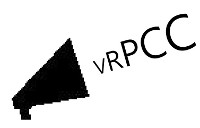
VRPCC
(The Vintage Radio Programme Collectors' Circle)
UPDATE,Sept 2024
We are a group of interested individuals who collect, listen to and discuss vintage radio programmes and who wish to ensure that they do not disappear.
It is now nearly thirty years since VRPCC was formed, and we continue to be sent large amounts of 'lost' material from private collectors, radio enthusiasts, and writers and producers (present and retired) from England and overseas. We have a large archive shared between many members. We also share recordings with the BBC when asked. Please contact us if you have material you would like to share with us or donate, or if you would like to know more about what we do.
We believe that radio drama and other quality radio programmes should not be allowed to disappear. Surprisingly, there is no official archive of radio drama in the UK; most of the BBC's radio play output (about 99%), pre-millenium, was not kept by the BBC. This is why we are concerned.
Nevertheless, much of the missing output still exists. Private recordings were made at the time by interested listeners, all over the country, on their home recording machines. This is the material we are collecting and organizing. Allowing it to disappear would be an act of cultural vandalism. Roger Bickerton, who founded VRPCC, writes about this below.
It is pleasing that so many 'lost' recordings are still being found. Some of them are listed on our Recent Finds page.
Please note that we are acutely aware of copyright and performing rights, and that we do not make copyright material publicly available.
ND, 14 Sep 2024
ROGER BICKERTON writes.....
The VRPCC is designed to cater for the individual collector of both spoken word radio output - e.g. comedy shows, plays, serials, documentary and news programmes - and music broadcasts, principally from the U.K., but also from America. Many individuals have amassed extensive collections, well catalogued, containing material which would otherwise not have been officially archived or preserved.
VRPCC is designed to put people with similar interests in touch with each other and to facilitate the exchange of material for purely private and personal enjoyment. A principal objective is to build membership through the selective recruitment of collectors and, in time, to minimise the risk of collections (which may have been built up over many years) being inadvertently - or, worse still, deliberately - destroyed when an individual's estate is dealt with.
Unfortunately, much material broadcast in the UK has not been preserved, due in part to constraints of space and money, and yet the content of radio programmes together with the method of presentation over the years does reflect the social manners of the time. It is highly likely that recordings of programmes which were transmitted many years ago are gathering dust in attics and lumber rooms or exist in private collections and await discovery.
Roger Bickerton
Roger's comments about the "Diversity" Website ...
I was pleased to be introduced to your website, and to see something about Radio Drama, a subject which has been unaccountably neglected by academics and critics, with but a few exceptions. There have been very few books written about it in the past 20 years, and only a handful in the 30 or so before then. There is evidence of a steady decline in the percentage of funding available to radio drama as opposed to TV, whose appetite for cash is undiminished. Certainly, the disappearance of the 90-minute play on Saturdays in mid-1996 was not well-received by many listeners, and it is many years since the BBC funded large-scale serials running to as many as 13 episodes, "War and Peace" being a notable exception in late 1997/ early 1998.
It could be argued that Radio Drama, more than any other category of programme (possibly apart from comedy) reflects the times in which we live, in terms of the subjects covered and the acting styles adopted. Therefore the location and preservation of private recordings, even if not of "broadcast quality", should form an essential part of the overall fabric of Social History, represented in so many ways throughout the UK by museums large and small. For the last few years I have been trying to trace serious collectors of spoken word radio output before their collections disappear forever into landfill sites. The limitations of equipment available in the 50s and 60s meant that recordings were often plagued with sound defects, whilst the high cost of tape resulted in recordings being wiped and replaced by other material. However, radio is such an ephemeral medium that unless collections are found and archived, it is likely that no other copies of a programme will exist.
I am in touch with Nigel and a few other people who have been recording radio drama for many years, so am particularly keen to hear from anyone who shares this interest and who may believe that there is no-one else "out there" who does. We can be contacted via the link on the left hand side of the page.
ROGER BICKERTON
VRPCC Convention, 2015
VRPCC Convention, 2024